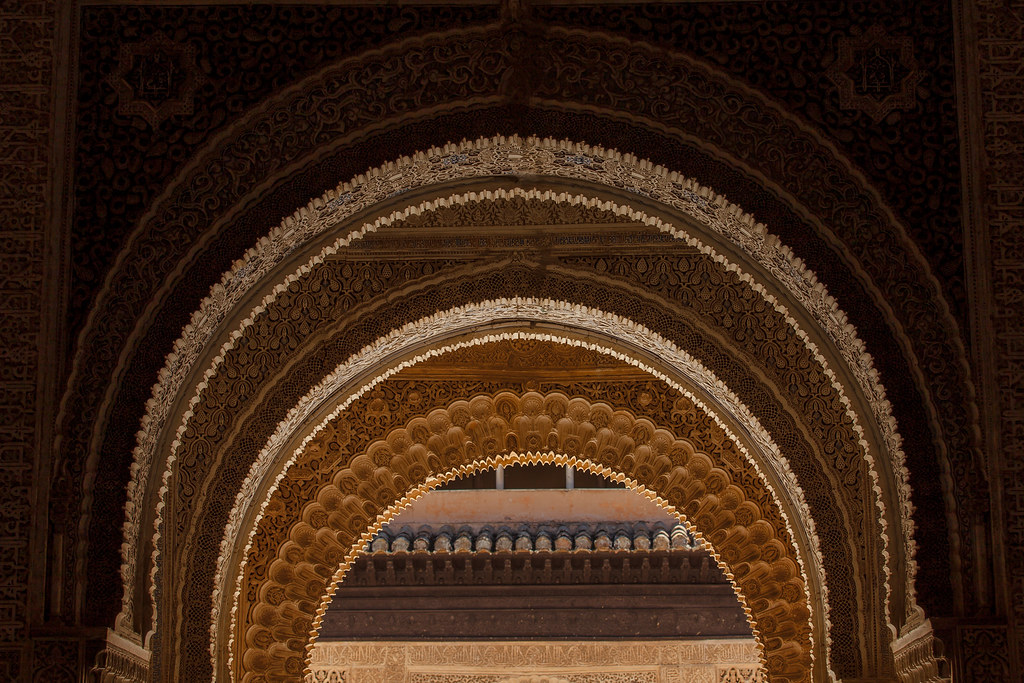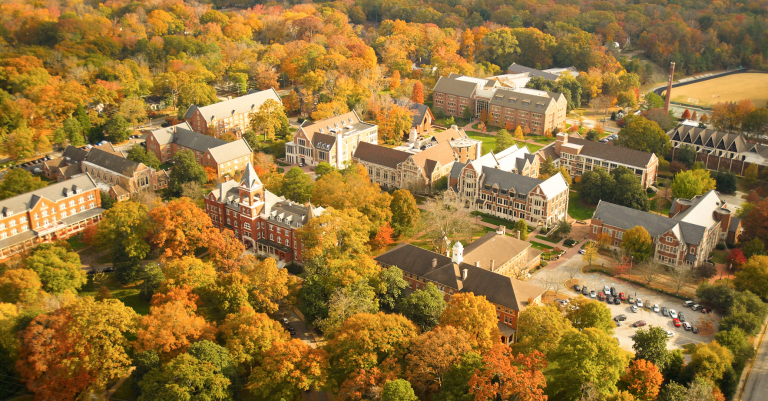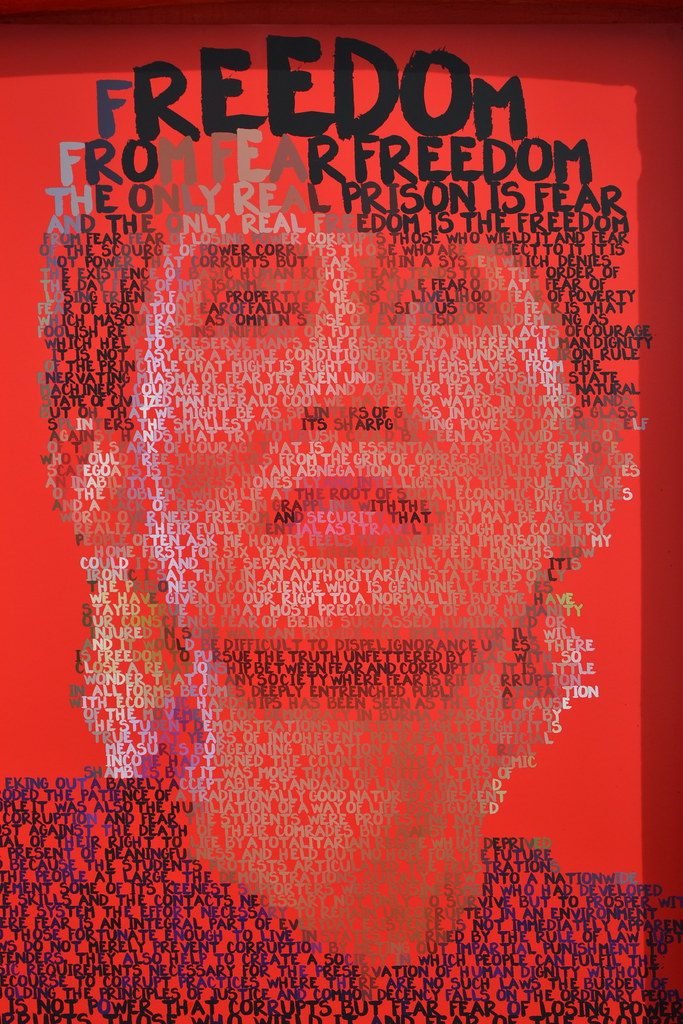At Agnes Scott College, first-years are given the privilege to go out of the campus for their Global class and expand on what they learned in class. While reading the letter that I wrote to myself at the beginning of the semester, I set goals to experience full global learning and have a better understanding of Islam. I also wrote about how I wanted to enjoy myself during my Journeys trip to Spain and try new food. Although I could not go to my Journeys destination because of Covid-19, I had the opportunity to gain a deeper understanding of Islam, the significance of traveling, and reflect on myself throughout this course.
Before this course, my knowledge about Islam was vague, and I only knew about the Five Pillars of Islam. I discovered that Islam came to Spain during the conquest of the Umayyad Caliphate of the Iberian Peninsula. We had also discussed Alhambra, a symbol of Islamic Architecture located in Granada, Spain, which was built as a fortress and later became a palace. It was constructed during Ibn Al Amar’s reign. Muslim’s globalization in Spain brought Islam, and Islamic Architecture, spices, etc. I was fond of reading Al-Andalus especially, Ziryab’s globalization, an Iraqi Muslim singer. I was astonished by his influence in Al-Andalus and his creation of many new things such as schools, deodorants, fragrances, cosmetics, food presentation, etc. Besides Muslim’s creations, Arabic is another globalization, because of some words in other languages derived from an Arabic word. Muslim’s globalization can be tied to Nike’s globalization of enriching poor countries. For example, a Nike factory in Vietnam gives its workers “three times the minimum wage for a state-owned enterprise, with free or subsidized meals, free medical services, and training and education” (Norberg). Many of the Nike workers do not complain because they received a lot of benefits that allow them to buy transportation and send their children to school. Many of Muslim’s creations have reached globalization because many of the creations are still use today all over the world.
Besides learning about globalization, part of the course is to travel to Spain and examine Islamic Architecture. Traveling is important because it allows you to experience a different culture and a different lifestyle than yours. However, one needs to be mindful when traveling, as Monsignor Ivan Illich said “Come to study. But do come to help” during his address to CIASP (Illich). Just as Illich said, our only plan in coming to Spain is “to study” anything related to Islam and to witness the emergence of Spaniards and Muslim culture. I also agree with his statement, “stay with your riots here at home” (Illich). I believed he is alluding to the idea that one needs to put American patriotism and the belief that other cultures need to follow the American footsteps behind. It’s hard to not do anything, when we, Americans are so used to speaking our minds. However, this is not the case in other countries, hence, we should be mindful and careful of our actions when traveling.
Throughout the semester, not only was I learning about Islam, but I was also learning about myself. I also set goals for myself such as doing well in my classes and getting my summer internship. I am a first-generation college student born in Myanmar and immigrated to the U.S. in 2008. Sarah Manyika wrote an essay “Oyinbo” about her personal experience with race and racisms. Just like Manyika when I first settled in America, “I was unprepared for living in a society in which race was such a defining element of personal identity” (Manyika 63). People used to make fun of me for my race and for being a Christian because all Asians are Buddhist. However, going to college has really made me, and meeting new friends, who are accepting, allows me to be who I am. I started to talk more and formed a friendship with my GBL partner. I also stepped out of my comfort zone by applying to internships and jobs that required interviews. I was able to get a summer internship in Malaysia however, it was postponed to the next summer due to the virus.
I am so grateful for this opportunity to learn more about Islam, the importance of traveling, and being able to reflect on myself through the course. Although the COVID-19 had postponed our trip due to the CDC advisory, I am not sad. I am more gratified that there are global measures against the virus to reduce the rate of infection. If we went, I feel like we had a greater chance of getting the virus. But I do not think the virus had limited our understanding of global learning because we studied how “the global patterns and systems [of Islam] that have shaped and continue to shape people’s lives” (Agnes Scott College). This idea is stated on the Agnes Scott College Global Learning page and it does not state that one has to go out of the country to experience it.
Sources
Illich, Monsignor Ivan. “Conference on InterAmerican Student Projects (CIASP).” Conference on InterAmerican Student Projects (CIASP). 20 Apr. 1968, Cuernavaca.
Manyika, Sarah. “Oyinbo.” (from Problematizing Blackness: Self-Ethnographies by Black Immigrants to the United States. Ed. Percy Claude Hintzen and Jean Muteba Rahier. New York: Routledge, 2003: 65-83.)
Norberg, Johan. “The noble feat of Nike: globalisation–otherwise known as ‘ruthless international capitalism’–is enriching the world’s poor.” Spectator, vol. 292, no. 9122, 7 June 2003, p. 20. Gale Literature Resource Center, https://link.gale.com/apps/doc/A103674163/LitRC?u=agnes&sid=LitRC&xid=f630d8ae. Accessed 30 Apr. 2020.
“Your Global Journey.” Agnes Scott College – Global Journeys, www.agnesscott.edu/global-learning/first-year-global-learning/journeys.html.


